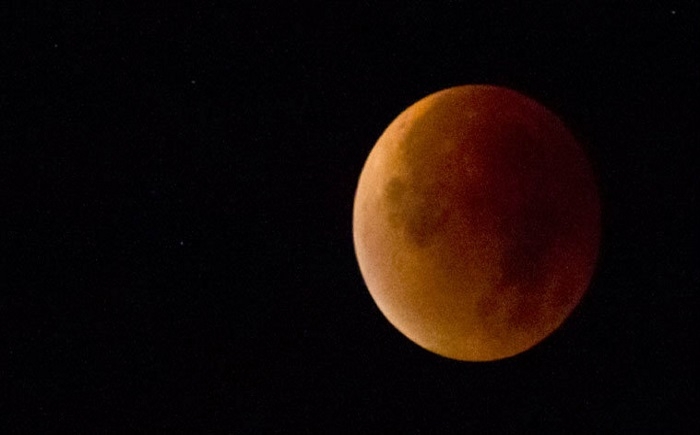Good news for stargazers: Rare Super Blood Moon, Wolf Moon to be seen on January 21-22

New Delhi, Jan 3: 2019 will we the feast year for stargazers and star lovers. The last week of January will be exciting because of rare lunar event-Super Blood Moon. This particular Super Blood Moon is actually going to be a trifecta of lunar events – a total lunar eclipse, super blood moon, and a “Wolf Moon” - and is also being called the Super Blood Wolf Moon.
The Super Moon in 2019, which is set for January 20 and 21 (depending on the time zone), will be visible to the people across the Americas and parts of western Europe and Africa.
This lunar eclipse even more special, this is last total lunar eclipse until May 26, 2021. The previous lunar eclipse took place on July 27 last year.
Super blood moon is a phenomenon in which the Moon appears particularly large and bright, with a reddish glow. The larger appearance of Moon can be attributed to the distance between Earth and Moon. During a Super Moon, the Moon is closer than usual to the Earth, making it look larger and brighter.
During a total lunar eclipse, when the sunlight passes through Earth's atmosphere, the shorter blue wavelengths of sunlight are scattered outside the Earth's shadow and the longer red wavelengths are refracted towards the Moon, making it look reddish. The brightness of the red glow depends on the amount of dust and clouds in the Earth's atmosphere. More dust can the make the Moon look a darker red.
On the other hand, Wolf Moon is a nickname for a full moon that appears in the middle of winter. It was given by the Native American tribes after the wolves that howled as they hunted for food in the winter. This time's January 21's event is being called Super Blood Wolf Moon.
According to the National Geographic, the total lunar eclipse will begin at 10:11 am IST on January 21 (11:41 pm ET, January 20) and will last for 62 minutes. Most people in Asia, including India, will not able to see the complete eclipse, whereas people in eastern Africa and eastern Europe will just get to see the partial lunar eclipse, which will start before the 10:11 am the start time and continue after the 62 minutes mark. The complete lunar event, including the partial eclipses and total eclipse, will last for 3.5 hours.